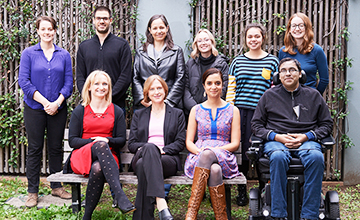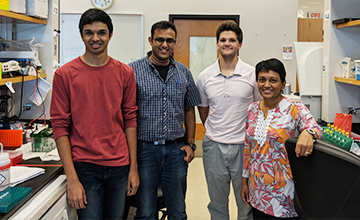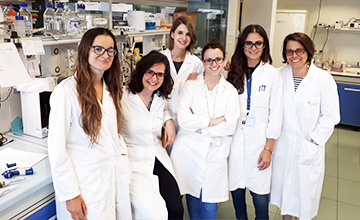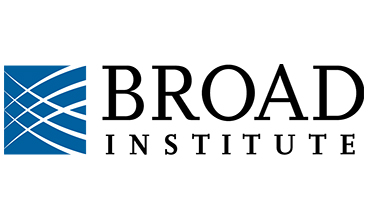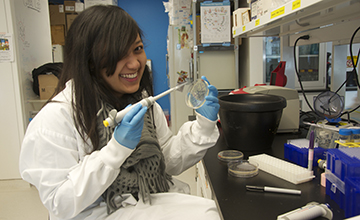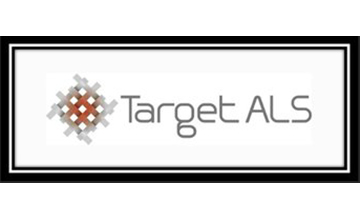
“We are grateful to MDA for its support of this extremely important work,” Mary Reilly said. “The results from our pilot study of an MRI neuromuscular protocol in CMT1A are promising and we anticipate we will be able to confirm responsiveness with a refined protocol in children with CMT1A and in the other three common types of CMT.”
Mary M. Reilly, professor of clinical neurology and consultant neurologist, UCL Institute of Neurology and National Hospital for Neurology and Neurosurgery, London, was awarded an MDA human clinical trials grant totaling $1 million to evaluate a new magnetic resonance imaging (MRI) protocol designed to detect disease-related changes in muscles over time in Charcot Marie Tooth disease (CMT).
In CMT, damaged motor nerves are unable to send adequate signals to muscles. This leads to muscle weakness and wasting, as well as other abnormal changes including the accumulation of fat in muscle tissue, which can be detected by MRI.
Reilly’s team has developed an MRI protocol to measure fat accumulation in thigh and calf muscles. In a pilot study to determine the protocol’s effectiveness at measuring fat infiltration in adults with CMT1A, Reilly’s team showed that the presence of calf muscle fat increased significantly over a 12-month time period.
With the new MDA funding, the team will work to refine the new protocol to include foot muscles, which could make it effective in mild cases of CMT where fat accumulation occurs more often in the feet than in calves. The team will study the refined protocol in children with CMT1A, as well as in the other three most common types of CMT: CMT1B, CMT2A and CMTX.
If successful, Reilly’s work could result in a sensitive, validated outcome measure in multiple forms of CMT, in both children and adults, that could allow researchers conducting clinical trials to reliably detect any positive effects of a candidate treatment within a 1- to 2-year timeframe.
https://doi.org/10.55762/pc.gr.79107
Grantee: CMT - Mary M. Reilly, M.D., FRCP, FRCPI
Grant type: Human Clinical Trial Grant
Award total:
Institution:
Country:




